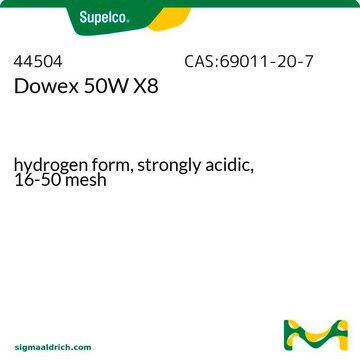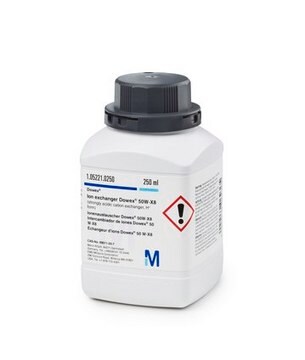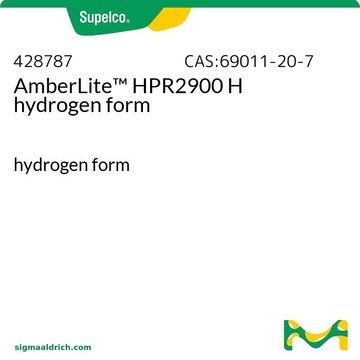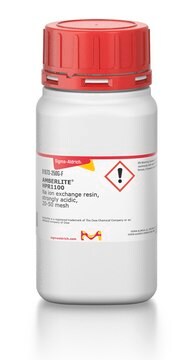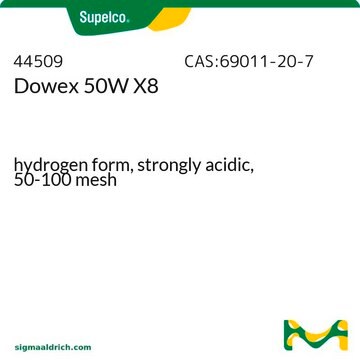463728
Manganese
powder, ≥99.9% trace metals basis
Synonym(s):
Colloidal manganese, Manganese element, Manganese-55
About This Item
Recommended Products
Quality Level
Assay
≥99.9% trace metals basis
form
powder
resistivity
185 μΩ-cm, 20°C
bp
1962 °C (lit.)
mp
1244 °C (lit.)
density
7.3 g/mL at 25 °C (lit.)
SMILES string
[Mn]
InChI
1S/Mn
InChI key
PWHULOQIROXLJO-UHFFFAOYSA-N
Looking for similar products? Visit Product Comparison Guide
Related Categories
General description
Application
- a starting material for the preparation of manganese oxide for lithium ion batteries
- a material used in surface alloying
- sintering of steel to form manganese steel
Features and Benefits
✔ Consistent quality
✔ High purity
✔ Available to scale up: bulk and pilot scale
Signal Word
Danger
Hazard Statements
Precautionary Statements
Hazard Classifications
Water-react 1
Storage Class Code
4.3 - Hazardous materials which set free flammable gases upon contact with water
WGK
WGK 2
Flash Point(F)
Not applicable
Flash Point(C)
Not applicable
Personal Protective Equipment
Choose from one of the most recent versions:
Already Own This Product?
Find documentation for the products that you have recently purchased in the Document Library.
Customers Also Viewed
Articles
Technologies are an integral part of our lives and we rely on them for such things as communication, heating and cooling, transportation, and construction. Improvements to technologies have made what they do for us more precise, automated, efficient, and powerful.
In recent years, the price of tellurium, a key component in the bestperforming thermoelectric materials, has increased significantly, leading to the question, “Is it economically viable to produce thermoelectric generators on an industrial scale?
The price of tellurium, a key component in many thermoelectric materials, has risen in recent years, leading to the search for more cost-effective substitutes. This article presents silicide materials as a cheaper potential alternative.
Our team of scientists has experience in all areas of research including Life Science, Material Science, Chemical Synthesis, Chromatography, Analytical and many others.
Contact Technical Service
